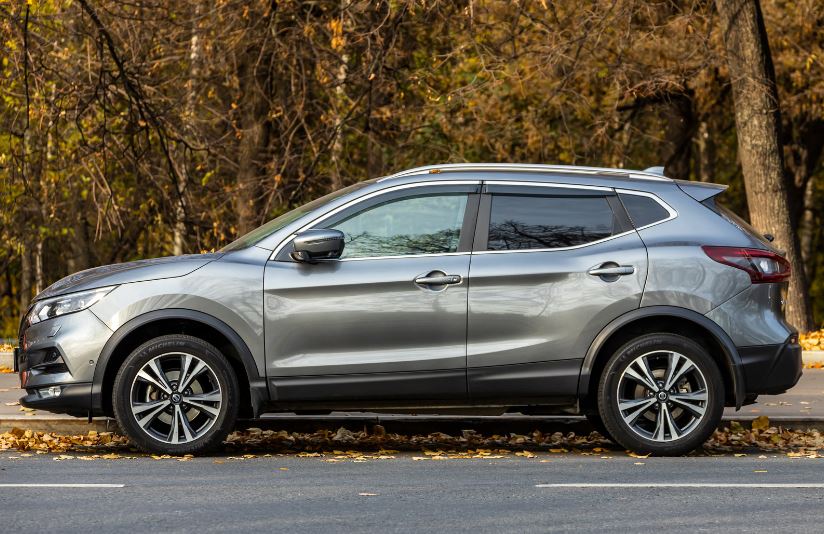Leasing A Used Car: Is It Possible? Should You Do It?
Leasing a used car has become a popular option for individuals seeking a cost-effective alternative to buying a new vehicle. However, questions often arise about the feasibility and practicality of leasing a used car.
In this article, we will explore whether it is possible to lease a used car and discuss whether it is a good decision for you. We will examine the benefits of leasing a used car, factors to consider before making a decision, the steps involved in leasing a used car, and the pros and cons of this option.
Additionally, we will provide tips for negotiating a used car lease. By the end of this article, you will have a better understanding of whether leasing a used car is the right choice for you.

December 11, 2023
Benefits of Leasing a Used Car
One of the benefits of leasing a used car is that it offers individuals the opportunity to drive a newer vehicle without the financial burden of purchasing it outright. Leasing a used car allows people to experience the benefits of driving a more modern and reliable vehicle without the high upfront costs associated with buying a brand-new car.
This can be particularly advantageous for individuals who prefer to have the latest features and technology in their vehicles but do not want to commit to a long-term financial obligation. Additionally, leasing a used car often comes with lower monthly payments compared to leasing a new car, making it a more affordable option for those on a tight budget.
Factors to Consider Before Leasing a Used Car
Before deciding to lease a used car, there are several factors that should be taken into consideration.
Firstly, it is important to understand the concept of used car depreciation and how it may affect the terms of your lease.
Additionally, you should inquire about the lease transferability options available, as this can provide flexibility and potential savings in the long run.
Lastly, it is crucial to assess the maintenance and warranty coverage offered by the leasing company, ensuring that you are protected against unforeseen expenses during the lease term.
Used Car Depreciation
Several factors should be considered when evaluating the depreciation of a used car before deciding to lease it.
The depreciation rate of a used car is influenced by various factors such as the brand, model, age, mileage, and condition of the vehicle. Luxury brands tend to depreciate at a slower rate compared to economy or mid-range brands.
Newer models generally experience higher depreciation in the first few years, while the rate slows down over time. Higher mileage and poor maintenance can also accelerate the depreciation process.
It is important to assess the estimated depreciation of a used car to determine its future value and ensure that the lease terms align with the expected depreciation rate.
Lease Transferability Options
To thoroughly evaluate the possibility and viability of leasing a used car, it is essential to explore the lease transferability options and factors that should be considered.
Lease transferability refers to the ability to transfer an existing lease to another individual. Some leasing companies allow lease transfers, while others do not. This can be an important factor to consider when leasing a used car, as it provides flexibility in case you no longer want or need the vehicle.
Additionally, it is important to consider the terms and conditions of the lease transfer. Some leasing companies may charge a fee for transferring the lease, while others may require the new lessee to meet certain credit requirements.
Understanding these options and factors can help you make an informed decision when considering leasing a used car.
Maintenance and Warranty Coverage
When considering leasing a used car, it is crucial to evaluate the maintenance and warranty coverage that comes with the vehicle.
Unlike new cars, used cars may have limited or no warranty coverage remaining. It is important to thoroughly inspect the vehicle's maintenance records and inquire about any existing warranties.
Some dealerships may offer extended warranty options for used cars, providing additional coverage for a specific period or mileage.
Additionally, it is essential to understand the maintenance responsibilities that come with leasing a used car. Regular maintenance and repairs are typically the lessee's responsibility, so it is important to factor in these costs when considering a lease.
Conducting a thorough assessment of the maintenance and warranty coverage is necessary to ensure a hassle-free leasing experience.
Steps to Lease a Used Car
Leasing a used car requires thorough research and careful consideration of its condition, history, and lease terms.
When looking to lease a used car, the first step is to determine your budget and the type of vehicle you are interested in. Research the market value of the car you want to lease to ensure you are getting a fair deal.
Next, inspect the car thoroughly and take it for a test drive to assess its condition and performance. Check the vehicle's history report for any accidents or major repairs.
Once you have found a suitable car, negotiate the lease terms, including the monthly payments, lease duration, and mileage limits.
Finally, carefully review the lease agreement before signing to ensure you understand all the terms and conditions.
Pros and Cons of Leasing a Used Car
Leasing a used car can offer several benefits, including lower upfront costs compared to leasing a new car.
However, it's important to consider potential maintenance issues that may arise with an older vehicle.
Additionally, the resale value of a used car can be a concern, as it may depreciate faster than a new car.
Benefits of Used Leasing
There are several advantages and disadvantages to consider when opting for a used car lease.
One of the main benefits of leasing a used car is the lower monthly payments compared to leasing a new car. Since used cars have already depreciated in value, the lease payments are often more affordable.
Additionally, leasing a used car allows you to drive a newer model with the latest features at a lower cost.
Another advantage is that you can avoid the hassle of selling or trading in the car at the end of the lease term.
However, there are also downsides to leasing a used car.
One major drawback is the limited selection of used cars available for lease.
Furthermore, you may face higher maintenance and repair costs since the car is not brand new.
It is important to carefully weigh these pros and cons before deciding whether a used car lease is the right option for you.
Lower Upfront Costs
When considering leasing a used car, one advantage to keep in mind is the lower upfront costs. Unlike leasing a brand new car, where the initial payment can be quite substantial, leasing a used car typically requires a smaller upfront payment.
This can be beneficial for individuals who are working with a limited budget or prefer to allocate their funds elsewhere. Lower upfront costs mean that lessees have more flexibility in terms of their financial commitments and can potentially access higher-quality vehicles at a lower price.
However, it is important to note that while lower upfront costs may seem appealing, lessees should also consider the overall costs of leasing a used car, including monthly payments and maintenance expenses, to make an informed decision that aligns with their financial goals.
Potential Maintenance Issues
One important consideration when leasing a used car is the potential maintenance issues that may arise.
While leasing a used car can offer cost savings compared to leasing a new car, it is crucial to be aware of the risks associated with older vehicles. Used cars typically have higher mileage and more wear and tear, which can lead to increased maintenance and repair needs. This can result in additional expenses and inconvenience for the lessee.
However, leasing a used car from a reputable dealer or certified pre-owned program can provide some peace of mind as these vehicles often undergo thorough inspections and come with extended warranties. It is essential for potential lessees to carefully evaluate the condition of the used car and consider the potential maintenance issues before making a decision.
Resale Value Considerations
To fully assess the pros and cons of leasing a used car, it is important to consider the resale value implications. When leasing a used car, the future resale value becomes a crucial factor.
One of the advantages of leasing a new car is that it typically has a higher residual value, meaning it will retain more of its original value when it comes time to sell or trade it in. However, with a used car, the resale value may not be as high, especially if it has already depreciated significantly. This can result in a higher monthly lease payment compared to a new car lease.
On the other hand, leasing a used car can offer cost savings over buying new, as the depreciation has already occurred. Additionally, if the used car holds its value well, it can provide the lessee with equity at the end of the lease term, which can be used towards the purchase of a new vehicle.
Ultimately, the resale value considerations of leasing a used car depend on various factors, including the specific make and model, its condition, and the market demand for it.
Tips for Negotiating a Used Car Lease
Negotiating a used car lease can be a challenging process, but with careful research and preparation, prospective lessees can secure favorable terms and conditions. Here are some tips to help navigate the negotiation process successfully.
First, gather information about the market value of the car you are interested in leasing. This will give you a starting point for negotiation and help you determine whether the lease terms are fair.
Next, have a clear understanding of your needs and budget. This will enable you to negotiate from a position of strength and ensure that the lease terms align with your financial goals.
Additionally, be prepared to negotiate the lease price, mileage limits, and any additional fees.



